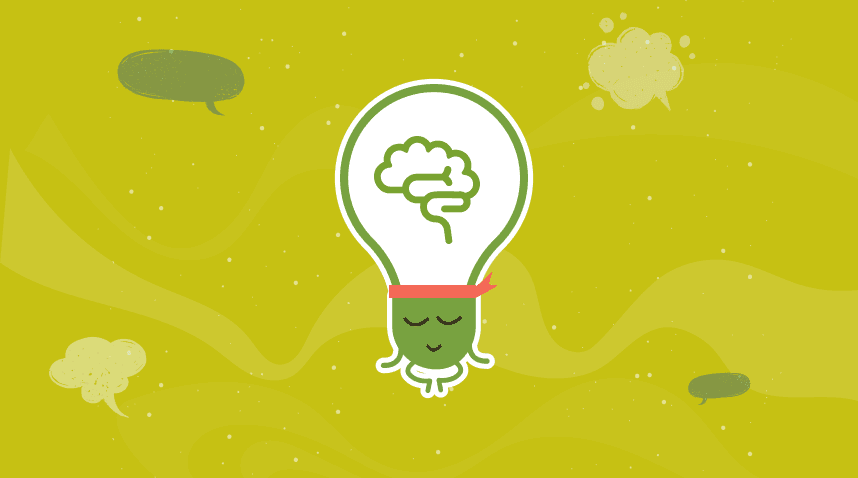TLDR: How can we use the Dhamma to help others going through a hard time? Cheryl suggests that we reflect on our own capacity, apply mindfulness, and cultivate compassion.
Ever found yourself struggling to help a friend in their darkest time? Have you received unsolicited advice when you’re down?
As someone who has struggled with mental health issues, receiving timely and compassionate emotional support feels like having a beacon of light shine in the darkness to guide and comfort you.
In this article, I will be sharing some ways in which we can learn and apply the Buddha’s teachings to offer better emotional support to those around us to help others find their own inner strength and resilience to navigate difficult emotions and offer support that is truly healing and transformative.
1. Pause and Reflect on Your Own Capacity

Emotional support is not just “sitting there and nodding your head.” It can be very challenging, especially in times of crisis or when dealing with difficult emotions.
Sometimes, it may also hit a raw nerve and trigger wounds that have not been healed fully especially if you are supporting someone close like a parent, sibling or spouse. Before saying yes to helping others, first, prioritise self-care and check in with yourself by asking these 3 questions.
- How is my mental and physical well-being right now on a scale of 1-10?
- What is my capacity to hold a space of non-judgment and understanding?
- What’s my intention to help?
Zen Master Thich Nhat Hanh reminds us that for one “to be of service to others, we must first learn to take care of ourselves. When our own cup is full, then only we can offer it to others.”
When we offer help from a space grounded in stability and well-being, we are offering an invaluable gift to another. A gift of presence that enables us to be fully with the depths of another person’s pain unravelling in an authentic and compassionate way.
More often than not, when we say ‘yes’ to help, it may be because we have a fear of judgment or a begrudging sense of obligation to show up. This may affect the quality of our presence and authenticity.
When you are clear about your own capacities and intentions, you can then draw boundaries that are compassionate to you and the other person. [Read: Not ghosting someone]. You can reassure them of how much you care about them, acknowledge that they are experiencing immense suffering, and importantly, iterate a commitment to getting back at a specific date or time.
Here’s a sample message that you can modify and use.
“Hey, I hear that you are suffering deeply due to [life event or stressor] and really wish that I could be there for you. However, I am feeling [What are you feeling] and I don’t feel like I can give you the support you deserve. I care for you deeply and [relationship/friendship] means a lot to me. Please allow me some time to take care of my suffering and I will be there for you as soon as I’m able to.
Can I call/text you to chat in [a specific days/hours]? Meanwhile, please take care of yourself well.”
2. Mindfulness

Another important aspect of offering emotional support from a Buddhist perspective is the practice of “mindfulness.” This involves being present in the moment and paying attention to our thoughts and feelings without judgment.
Using mindfulness, we can become more attuned to the other person’s words and body language. This can help us communicate more effectively and be more responsive to the other person’s needs. We can also respond to difficult emotions with kindness and compassion, rather than reacting in a harmful or dismissive way, offering them a safe space to be vulnerable.
More often than not, emotional support is not about fixing or solving problems, but rather about offering a safe and non-judgmental space for others to process and express their emotions. And in doing so, one can then get in touch with their inner resilience and wisdom to transform their own suffering.
Here’s a quote from Thich Nhat Hanh’s No Mud, No Lotus: The Art of Transforming Suffering, that captures this beautifully:
“The way to suffer well and be happy is to stay in touch with what is actually going on; in doing so, one will be able to go further and transform our suffering into understanding, compassion, and joy for ourselves and for others.”
To provide good emotional support, one does not need to have perfect mindfulness. Truth is, nobody is perfect (unless you are a fully enlightened being). Instead, start where you are and with what you can and continuously practice the skill. Here are 3 tips to help you incorporate mindfulness into listening (PsychCentral):
- Ground yourself with a deep, mindful breath before responding.
- Reflect back on what you have heard: Summarize or paraphrase what the speaker has said to show that you have understood their perspective.
- Ask open-ended questions: Ask questions that encourage the speaker to expand on their thoughts and feelings, rather than closed-ended questions that require a simple yes or no answer.
Remember, mindful active listening is a skill that takes practice, so be patient with yourself and keep working at it.
3. Compassion

According to Ven. Bhikkhu Bodhi, a Buddhist monk and translator, “compassion is a mental attitude characterized by the strong wish that living beings be free from suffering and the willingness to actively help bring that about” (https://www.accesstoinsight.org/lib/authors/bodhi/bps-essay_40.html).
Grounding yourself in compassion shifts the perspective from “I” to “You”. It’s no longer about “What can I do to support?” but rather, “What do you need to reduce your suffering?” and committing to offer that.
This is a subtle difference but one that is immensely powerful. How many times have we received unsolicited advice when it was not the right time, and how did that feel?
By cultivating compassion, we can better understand and relate to the struggles and challenges others may be facing, and offer support that is grounded in understanding and care.
When unsure, the most humbling way, is to acknowledge the uncertainty and ask “I’m not sure what can help you to feel better at this moment, can you please help me?” Or, simply, “what do you need most at this moment?” Then you can offer what is appropriate to the moment – a hug, solutions, resources or perhaps, tissue to wipe their tears away.
Sometimes, the response could be uncertain too, and that’s the perfect opportunity to offer space and sit with them in silence as they untangle their emotions.
In conclusion, providing emotional support in the Buddhist way involves taking care of oneself, being mindful, and grounding oneself in compassion to offer meaningful and supportive help to those in need, while also cultivating our own sense of compassion and understanding. This is merely the tip of the iceberg, and there are many other ways that the Dhamma can be applied to benefit others.
Want to learn more?
The Dot Connections Growth Centre is organizing a 7-module Diploma in Buddhist Psychotherapy and Counseling commencing in April 2023 to November 2023, which focuses on the practical and theoretical training in counseling therapeutic skills based on Buddhist precepts and tenets.
The course is also coupled with secular approaches to counselling and psychotherapy in dealing with the mental and emotional issues of clients. You will also get to acquire practical experience through internships with community organizations.
You may learn more here or register here . If you have any other questions, please contact Dot Connections by Whatsapp at 8501 4365 or via email at [email protected].


